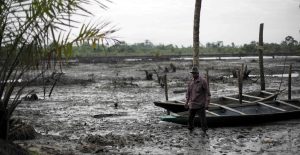World Bank Approves $500m Loan to Improve Dam Safety and Water Resource Management in Nigeria
The Federal Government of Nigeria has secured a $500 million loan from the World Bank to enhance dam safety and water resource management across the country. The loan, which is part of the Sustainable Power and Irrigation for Nigeria Project, aims to address the country’s water security challenges and boost agricultural productivity.
According to the World Bank’s Project Information Document, the SPIN project will focus on four critical areas: institutional strengthening and capacity building, irrigation modernization, improvements in dam operations and safety, and project management. The proposed approval date for the project is September 26, 2024.
The document highlights that Nigeria faces significant water security challenges, which impact water availability for drinking water, energy, and food production. Climate change has exacerbated these challenges, putting livelihoods and economic development at risk. Harnessing water storage and dam safety is crucial for climate change adaptation and mitigation in Nigeria.
The country has over 400 dams, with an estimated total combined storage of 59 billion cubic meters. However, many dams are incomplete, and more than 50% of the large dams built in the 1970s and 80s require rehabilitation. The inadequate budget, human resources, and capacity of institutions responsible for dam management have contributed to this situation.
The devastating 2022 floods, which caused an estimated $6.7 billion in economic damage, have underscored the urgent need for improved dam safety and water management. The Federal Government plans to rehabilitate and modernize 40,000 hectares of irrigated land, establish and empower Water User Associations to manage irrigation schemes efficiently, and rehabilitate and enhance the safety of priority dams.
The project will also ensure effective project implementation, monitoring, and evaluation through the establishment of a Federal Project Management Unit and Technical Units at both federal and state levels.
The loan is expected to have a significant impact on Nigeria’s water security and agricultural productivity, ultimately contributing to the country’s economic development and growth.





